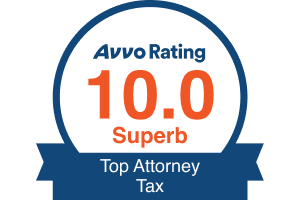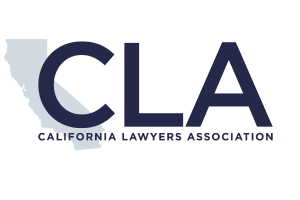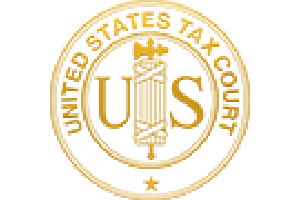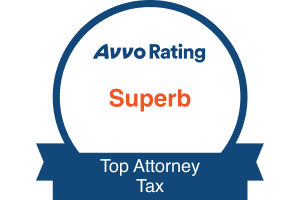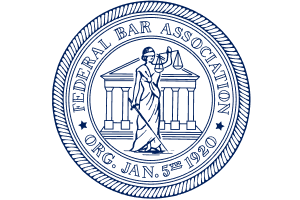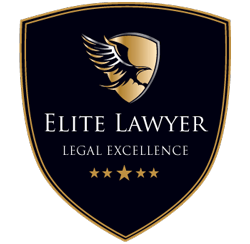Getting Results
Tax Evasion & Tax Fraud Defense
Defending Criminal Tax Evasion & Tax Fraud Cases
The following are potential United States Code Title 26 and 18 common charges that most tax fraud or tax evaders could be facing in a criminal tax crime case. It is not comprehensive but from the criminal tax defense cases we’ve handled over the years, these appear to be the most common charges pursued by the IRS – US Attorneys (“AUSA”) office. AUSA in many cases are most fond of Title 26, United States Code, Section 7206 and 7201 tax crime charges and dictating the prison time based on the tax loss to the IRS – US government.
A) IRS Tax Evasion – 26 U.S.C. § 7201 – Felony – 5yrs
Government’s impediment to tax evasions charges under this section centers around the concept of willfulness under this section. It is important for tax lawyers to understand the that this the biggest weaknesses in most criminal tax cases for both the government and potential criminal tax defendant.
Under 26 U.S.C. (“IRC”) § 7201, a criminal tax defendant may be charged with the willful attempt to (a) evade or (b) defeat the assessment of taxes or the payment of taxes.
To establish evasion of assessment of tax, the IRS-government must prove that:
- The tax defendant committed an affirmative act to defeat or evade tax.
- There is a material amount of tax due and owing.
- The tax defendant acted willfully.
Affirmative Criminal Conduct Required Felony Tax Evasion:
The courts have viewed the requirement of affirmative conduct broadly. In Spies v. United States, 317 U.S. 492 (1943), the Supreme Court provided a nonexclusive list of acts that constitute such affirmative conduct: “keeping a double set of books, making false entries of alterations, or false invoices or documents, destruction of books or records, concealment of assets or covering up sources of income, handling of one’s affairs to avoid making the records usual in transactions of the kind, and any conduct, the likely effect of which would be to mislead or to conceal.” This case arose from IRS tax fraud audit in New York.
Additional Tax Due and Owing:
The existence of a tax deficiency is a required element of evasion of assessment under IRC § 7201. Even if a defendant intentionally failed to report income and took affirmative steps toward this goal, the tax defendant must be acquitted of tax evasion if the government is unable to prove that additional tax was owed. Tax Defendants are entitled to introduce evidence that no tax is due, which often results in a criminal prosecution looking a lot like the civil tax case.
Best Defenses for Felony Criminal Tax Evasion Case 26 U.S.C. § 7201:
Lack of Willfulness:
Unlike most criminal offenses, ignorance or a good faith misunderstanding of the law constitutes a defense to a criminal tax offense. See United States v. Abboud, 438 F.3d 554, 581 (6th Cir. 2006) (“[b]ecause of the complexity of the tax system, tax law is one of the few areas where the Supreme Court has held that ignorance of the law is a defense.”) (citingCheek v. United States,498 U.S. 192, 199-200 (1991)).
Reliance of Accountant:
A frequent defense in criminal tax cases is good faith reliance on an accountant or professional tax advisor. This defense requires that the defendant provide his advisors with all necessary information and follow the advice received. See United States v. Bishop,291 F.3d 1100, 1107-1008 (9th Cir. 2002);United States v. Butler,211 F.3d 826, 833 (4th Cir. 2000);United States v. Custer Channel Wing Corp.,376 F.2d 675, 683 n.15 (4th Cir. 1967).
No Tax Due:
A defendant can challenge the existence of a deficiency by offering evidence that the funds at issue do not constitute taxable income.
B) Evasion of Payment of Tax – 26 U.S.C. § 7201 – Felony – 5yrs
The elements of the offense of evading the payment of tax are:
- an assessment of tax due and owing;
- an affirmative attempt to evade the payment to the tax; and
- willfulness.
The tax assessment requirement is satisfied by the defendant filing a tax return resulting in a self-assessment, or the Internal Revenue Service making an assessment based on the results of an examination, a jeopardy assessment, or a substitute-for-return pursuant to IRC § 6020(b).
C) Willful Failure to Collect or Pay Over Tax – 26 U.S.C. § 7202
Failure to pay tax violation § 7202 provides that:
“[a]ny person required under this title to collect, account for, and pay over any tax imposed by this title who willfully fails to collect or truthfully account for and pay over such tax shall, in addition to other penalties provided by law, be guilty of a felony and, upon conviction thereof, shall be fined not more than $10,000, or imprisoned not more than 5 years, or both, together with the costs of prosecution.”
D) Failure to File Returns – 26 U.S.C. § 7203 – Misdemeanor – 1 yr
Gov does not like to file criminal tax charges exclusively under this section due to numerous defenses that are possible for the potential criminal tax defendant. In many cases, tax prosecution under this section is heavily dependent on facts of the case and criminal defendant’s circumstantial evidence could easily thwart government’s criminal tax case. However, constructing a settlement with government or pleas centered around this section would be a good strategic move in any criminal tax case when the situation is ripe.
What Is the Criminal Tax Violation Under This Section?
Willful failure to pay a tax, make a return, keep records or supply information required by the Internal Revenue Code constitutes a violation of IRC § 7203.
The elements of this criminal tax offense are:
- The defendant had an obligation under the Internal Revenue Code to pay a tax, file a return,
- keep records or supply information.
- The defendant failed to perform such obligation.
- The defendant acted willfully.
The government may also add a single count of failure to file to a multiple-count tax indictment involving other criminal tax offenses.
Common Criminal Crimes for Tax Preparers & CPA
E) False or Fraudulent Returns or Statements – 26 U.S.C. § 7206(1). – Felony – 3yrs
This is the section that most competent tax attorneys should be concerned about. Even if your criminal tax defendant client or tax preparer was not aware of the legality of the tax scheme he may have been involved with, it will be difficult to convince IRS investigators of the defendant’s innocence if there are multitude of documents which were filed which are clearly false on its face. Some examples include backdating documents, using fake names, fake expenses, illegal refunds, false social security numbers and fake legal status.
Criminal Tax Violation for False Returns
Under IRC § 7206(1), any person who willfully signs and files any return, statement, or other documents containing a declaration that it is under the penalties of perjury, and that he does not believe to be true and correct as to every material matter, is guilty of a felony and subject to a fine of not more than $100,000 (not more than $500,000 for corporations) and/or imprisonment of up to three years, along with costs of prosecution.
This statute § 7206(1) is sometimes referred to as the tax perjury or fraud statute.
The elements of this criminal tax offense are:
- The return, statement or other document contained false information with respect to a
- material matter.
- The defendant made and signed a return, statement or other document that contained a written
- declaration that it was being signed subject to the penalties of perjury.
- The defendant did not believe that the material matter was true and correct; and
- The defendant acted willfully.
Unlike the crime of tax evasion, a criminal tax defendant can be convicted of filing false returns even if no tax is due. This charge is often used where the government is uncertain whether the criminal tax defendant can challenge the tax deficiency or where a taxpayer fails to report their interest in a foreign bank account.
In the context of USC § 7206, a material false statement has been defined as a statement that “could hinder or affect the IRS in carrying out functions such as the verification of the accuracy of a tax return.”
Whether a false statement is material is a mixed question of fact and law to be determined by the jury. United States v. Uchimura, 125 F.3d 1282, 1285-86 (9th Cir. 1997)
The element of willfulness under IRC § 7206(1) mirrors the corresponding requirement under USC § 7201.
F) Aiding and Abetting the Preparation or Filing of False or Fraudulent Returns – 26 U.S.C. § 7206(2) – Felony – 3yrs
This is the criminal tax law section that AUSA seems to charge all other potential criminal tax defendants that are involved in filing false tax returns. In my legal practice, I’m less concerned about this criminal tax law section than the previous because the biggest challenge for the government prosecutors would be whether the criminal tax defendant seems believable in his lack of knowledge defense. A well prepared criminal tax defendant will obfuscate the government’s willingness to pursue criminal tax charge under this section for filing false tax returns.
In a typical fraudulent tax return cases involving tax preparers or CPAs, a collateral criminal tax defendant often are fairly unsophisticated bystanders who must claw their way out of the purview of suspicious government investigators. In many cases, the extreme degree of naivete of some collateral criminal tax defendants make their “innocent bystander” defense difficult to believe. This is where education levels, past experiences and past examples of gullible attributes may actually help the criminal tax defendant.
Where a person aids or assists in the preparation or filing of false or fraudulent returns or other documents of another taxpayer, the government will charge under IRC § 7206(2).
Those convicted of aiding and abetting the preparation or filing of false returns are subject to fines of not more than $100,000 ($500,000 in the case of a corporation) and/or incarceration for up to 3 years, and costs of prosecution.
Criminal Tax offense for Aiding & Abetting False tax Returns are:
- The defendant aided and assisted in, or procured, counseled or advised the preparation or presentation of a return or document in connection with a matter arising under the internal revenue laws;
- The return, statement or other document was false respect to a material matter.
- The defendant acted willfully.
G) False documents – 26 U.S.C. § 7207 – Misdemeanor – 1yr
IRS does not like to file a criminal tax case only under this section because it’s a misdemeanor. Where taxpayer submits any document that are deemed to be false or fraudulent, you can be charged criminally for false document filing. Many criminal tax defendants who represent themselves or through CPAs will run into this issue. Also, due to mens rea elements under this criminal charge, Sec 7203 criminal charge may be better for certain criminal tax defendants than this section because certain professional designation can be revoked for crimes that arise under this charge.
Definition of Filing False Documents:
Any person who willfully delivers or discloses to the Secretary any list, return, account, statement, or other document, known by him to be fraudulent or to be false as to any material matter, shall be fined not more than $10,000 ($50,000 in the case of a corporation), or imprisoned not more than 1 year, or both.
The elements of this criminal tax offense are:
- The defendant delivered or disclosed a list, return, account, statement or other document to
- the Internal Revenue Service.
- The defendant knows that information contained therein is false or fraudulent.
- The false or fraudulent information is material.
- The defendant acted willfully.
This criminal tax offense differs from the felony under IRC § 7206(1) in that IRC § 7207 does not require that the statement or document contain a declaration under penalties of perjury. United States v. Bishop, 412 U.S. 346 (1973). Nor does it require an amount of tax due. Sansone v. United States,380 U.S. 343 (1965).
It does not require that the criminal tax defendant directly or indirectly participate in the preparation of the document at issue, only that the defendant willfully delivered or disclosed the document to the Internal Revenue Service with knowledge of its falsity.
While the government rarely charges under this statute, it has done so in cases where taxpayers provide false or fictitious documents during a civil examination. United States v. Galaniuk,738 F. Supp. 225 (E.D. Mich. 1990).
H) Aiding and Abetting Tax Crime – 18 U.S.C. § 2(a) and (b) Felony or Misdemeanor
This is a section is designed to criminally charge anyone that may not have been directly involved in the criminal tax activity but should have known better. Section 2(b) seems to indicate that you can be a “dupe” or “chump” used by a principal with no “intent” and still be convicted under this section. Usually criminal tax defense under this section will need a lot of direct and circumstantial facts of the case to be flushed out to get the proper clarification of the actual criminal wrong doing of the tax defendant. Additional information and notes below from other criminal tax cases may shed some light.
Rule on Aiding and Abetting a Tax Crime:
- Whoever commits an offense against the United States or aids, abets, counsels, commands, induces or procures its commission, is punishable as a principal.
- Whoever willfully causes an act to be done which if directly performed by him or another would be an offense against the United States, is punishable as a principal.**
Elements of crime:
- Commission of a crime charged by another person
- Taxpayer knowingly assisted or participated in the venture
- Crime completed
- Taxpayer’s intent to cause another to commit a crime, and
- Guilty knowledge
Section 2 is a ‘derivative’ offense; and, the sanctions for its violation will depend upon the sanctions imposed for the underlying offense.
18 U.S.C. Section 2 is not a separate offense. Section 2 is an accomplice statute which establishes vicarious liability for any criminal violation cognizable under the United States Code, including Title 26.
Section 2 does not establish a separate, distinct crime. United States v. Pepe, 747 F. 2d 632,665 (11th Cir. 1984).
Section 2(a) punishes “aiders and abettors” [a] It must be proven that somebody committed a crime and that the defendant affirmatively acted to aid in the commission of that crime. United States v. Perry, 643 F.2d. 38, 40 (2d Cir. 1981);
Section 2 punishes as a principal, one who aids or assists another. United States v.Cowart, 595 F.2d 1023, 1031 n. 10 (5th Cir. 1979). An individual charged under § 2, must also be charged under the substantive offense.
Section 2(b) applies to defendants who cause another person to commit a crime. The defendant must have taken some action, without which, the crime would not have been committed by another. United States v. Gleason, 616 F.2d 2, 20-21 (2d Cir. 1979),
Unlike § 2(a), under § 2(b), the guilt of the person who commits the underlying crime is not relevant. United States v. Causey, 835 F.2d 1289, 1292 (9th Cir. 1987); This section is difficult to bring criminal tax charges under because it is fraught which knowledge, intent and willfulness issues which can derail government’s criminal tax case.
The rule: 1. If the defendant acted through a guilty party, then the defendant may be charged under either § 2(a) (aids, abets, counsels) or under § 2(b) (willfully causes an act to be done).
If the defendant acted through an innocent third-party, § 2(b) is the correct charge.
In United States v. Causey, 835 F.2d 1289 (9th Cir. 1987), the Ninth Circuit upheld the conviction of the defendant for aiding and assisting other taxpayers in filing false tax returns even though the government did not prove the other taxpayers knew their returns were false. Thus, in certain cases involving false refund claims, the Tax Division recommends charging section 2 with section 287. It is not necessary for the principal to be identified or convicted.
A conviction may lie even if the accessory lacked the capacity to commit the substantive offense, so long as the substantive offense was committed by a principal. United States v. Giordano, 409 F.2d 327, 330 (2d Cir. 1973). It is not necessary that the individual committing the offense have any criminal intent. A crime may be committed by a “dupe” with the requisite intent being in another. United States v. Causey, 835 F.2d 1289, 1292 (9th Cir. 1987); United States v. Bryan, 483 F.2d 88, 92 (3d Cir.1973). This is confusing.
The government must prove that the defendant was associated with a crime which he wished to bring about and which he sought to make succeed by his actions. United States v. Longoria, 569 F.2d 422, 425 (5th Cir. 1978). Mere presence at the scene of a crime, coupled with knowledge or acquiescence, is not enough to establish aiding and abetting. United States v. Stanchich, 550 F.2d 1294, 1300 (2d Cir. 1977). A defendant can be found criminally culpable as an aider and abettor to the commission of a tax crime. United States v. Murph, 707 F.2d 895, 897 (6th Cir.), cert. denied, 464 U.S. 844(1983) (preparation of a fraudulent tax return for another); United States v. Frazier, 365 F.2d 316(6th Cir. 1966) (aiding and abetting in the commission of § 7201).
Generally, it is preferable to charge the substantive tax offense under § 7206(2) instead of this Title 18 offense. Note: In Frazier, 365 F.2d 316, the court found that one could be criminally culpable as an aider and abettor to the evasion of income taxes under § 7201 and 18 U.S.C. § 2, where the defendant participated in assisting another in the concealment of assets. It was held that the defendant did not have to be involved with the actual preparation and/or filing of returns.
I) Conspiracy to commit offense or defraud United States – 18 U.S.C. § 371 – Felony – 5yrs
Government typically will have a hard time proving willfulness under this section without statements or direct evidence from other co-conspirators in the criminal tax case. However, early plea deals from co-defendants can expose any criminal tax defendant to be charged under this section. Criminal tax attorney helping his client needs to be concerned about any communications between parties including written materials which could bring criminal tax defendants act under the purview of this section.
Under 18 U.S.C. § 371, a defendant can be charged with conspiring to commit a substantive offense (the “offense” clause) or conspiring to defraud the United States (the “defraud” clause).
Conspiracy to commit tax fraud is defined as:
If two or more persons conspire either to commit any offense against the United States, or to defraud the United States, or any agency thereof in any manner or for any purpose, and one or more of such persons do any act to effect the object of the conspiracy, each shall be fined under this title or imprisoned not more than five years, or both.
If, however, the offense, the commission of which is the object of the conspiracy, is a misdemeanor only, the punishment for such conspiracy shall not exceed the maximum punishment provided for such misdemeanor.
18 U.S.C. § 371. The elements of a § 371 criminal tax conspiracy are:
- The existence of an agreement to accomplish an illegal or unlawful objective or to defraud the United States.
- The defendants knew of the agreement and with such knowledge, voluntarily participated in the conspiracy.
- The commission of an overt act by conspirators in furtherance of the objective of conspiracy.
The Agreement
The government must prove the existence of an agreement or that the defendant intended to agree with at least one co-conspirator.
Intent
The government must establish that a defendant has the specific intent to participate in the conspiracy and to defraud the United States or to violate the substantive statutes that are the object of the conspiracy. Knowledge of the unlawful conduct of others, without more, will not suffice.United States v. Falcone, 109 F.2d 579, 581 (2d Cir. 1940). Nor will mere association with the conspirators.Id.; see also United States v. Pupo,841 F.2d 1235, 1238 (4th Cir. 1988);United States v. Cole,704 F.2d 554, 557 (11th Cir. 1983).
J) 18 U.S.C. § 1621 Criminal Tax Perjury – Felony – 5yrs
Whoever, (1) having taken an oath before a competent tribunal, officer, or person, on any case in which a law of the United States authorizes an oath to be administered, that he will testify, declare, depose, or certify truly, or that any written testimony, declaration, deposition, or certificate by him subscribed is true, willfully subscribes as true any material matter which he does not believe to be true; is guilty of perjury and shall… be fined no more than $2,000 or imprisoned not more than five years, or both.
K) 18 U.S.C. § 1001 False Statement to Government- Felony- 5yrs
Relevant to many criminal tax cases, criminal charge under this section is similar to 7207 charge. Government prosecutors like to file under this section and 7207 to force plea negotiation as it is easier in some cases for the government to win under this section. The existence of this section is why as a criminal tax defendant, you should NEVER talk to the IRS or government investigators.
False Statement Rule:
Whoever, in any matter within the jurisdiction of any department or agency of the United States knowingly and willfully makes any false… statements shall be fined not more than $10,000 or imprisoned not more than five years, or both.
L) Statute of Limitations – 26 U.S.C. § 6531
The statute of limitations for criminal tax offenses under Title 26 of the U.S. Code is 6 years pursuant to IRC § 6531.


